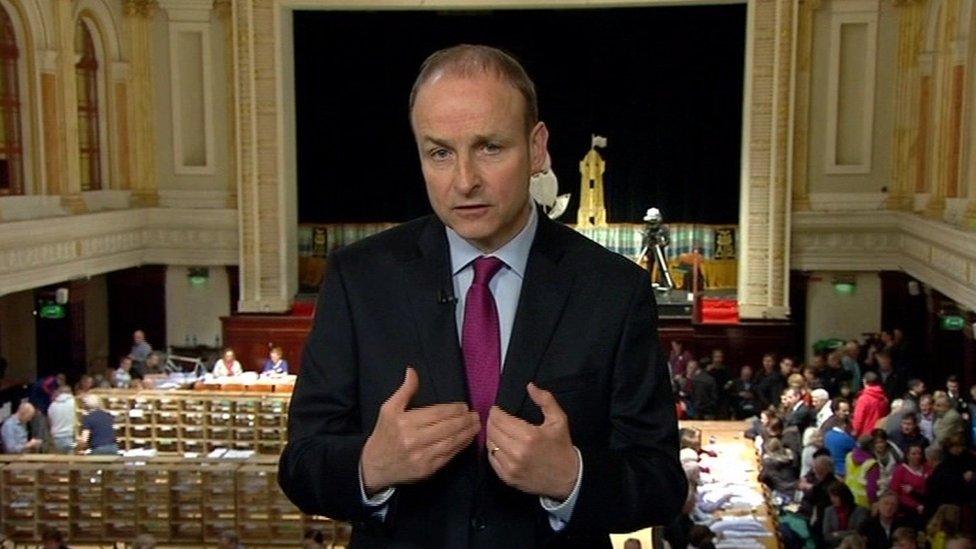BBC Border poll survey: Brexit impact on opinions
- Published
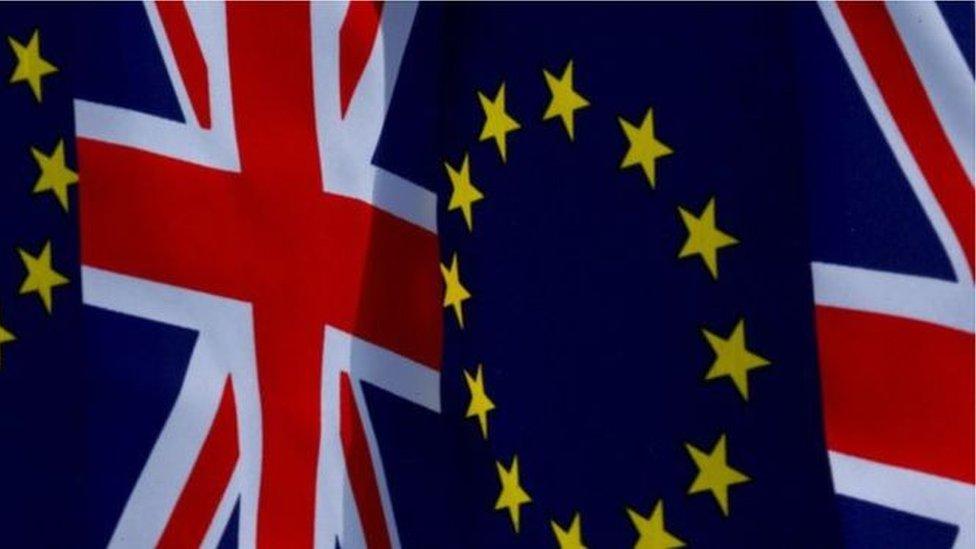
The BBC border poll survey suggested 8/10 voters opinions were unchanged by Brexit
Having spent the last few days trawling through the numbers in the View's latest survey, I feel safe in assuming that having covered the Good Friday Agreement referendum, the EU referendum and the AV referendum (remember that) I am unlikely, in my tenure as BBC NI Political Editor, to find myself covering a border poll.
(Note to editor - I am not ruling returning from retirement for a bit of punditry, I might need the cash!)
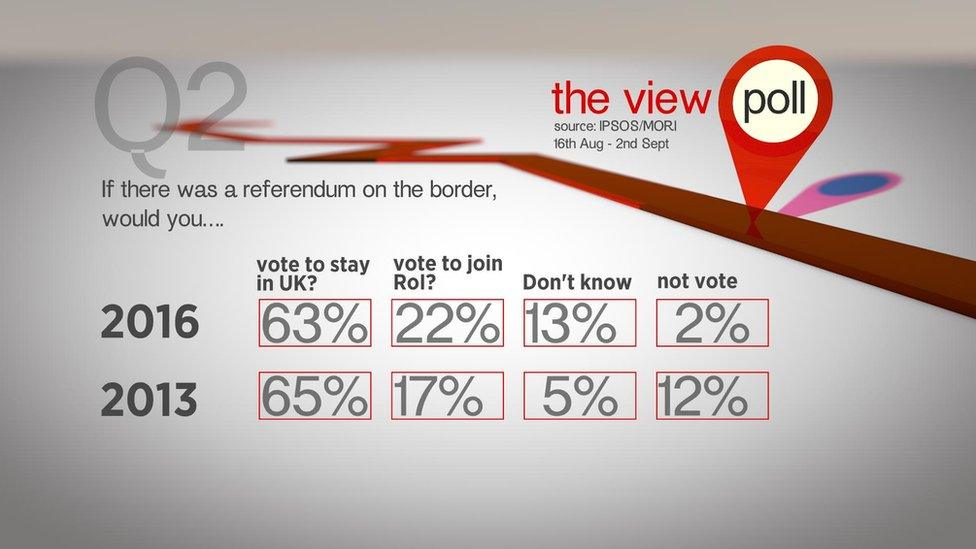
There was a rise in those who would vote to join the Republic of Ireland since 2013
Fluctuating support
Sinn Féin may take heart from the apparent rise in backing for a United Ireland over the past three years.
However, the results of successive NI Life and Times Surveys shows that support fluctuating up and down but never reaching the critical mass needed to convince the UK government that majority opinion in NI has changed.
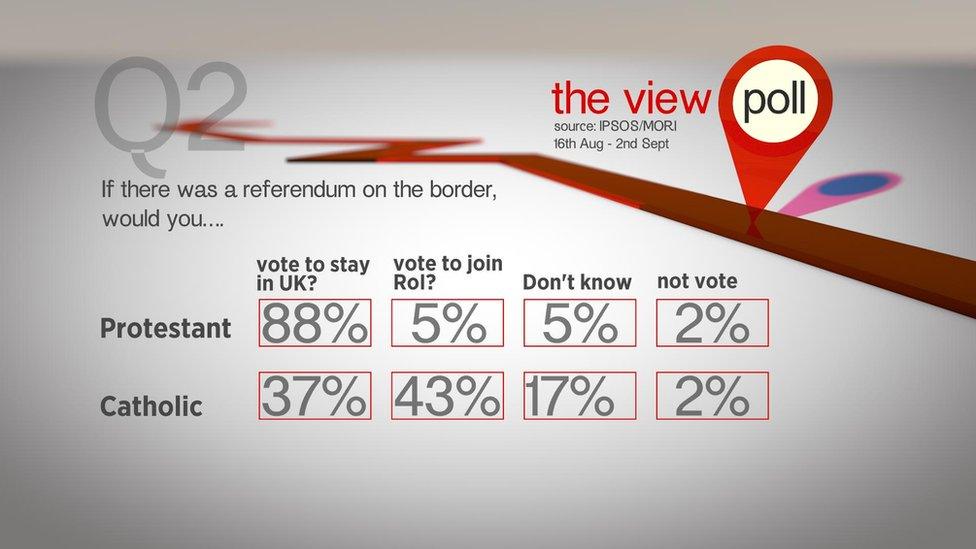
The majority of protestants asked as part of the survey wished to remain in the UK
It all seems a far cry from the days when we were eagerly awaiting census figures to see if Protestants had become a minority.
There may still be clear correlations between religion and politics in Northern Ireland, but when it comes to a border poll it's more complicated than that.
One of the pundits who graced our airwaves, I think it was Pete Shirlow, noted that when a United Ireland comes up the discussion is dominated by head counts rather than the merits of the case.
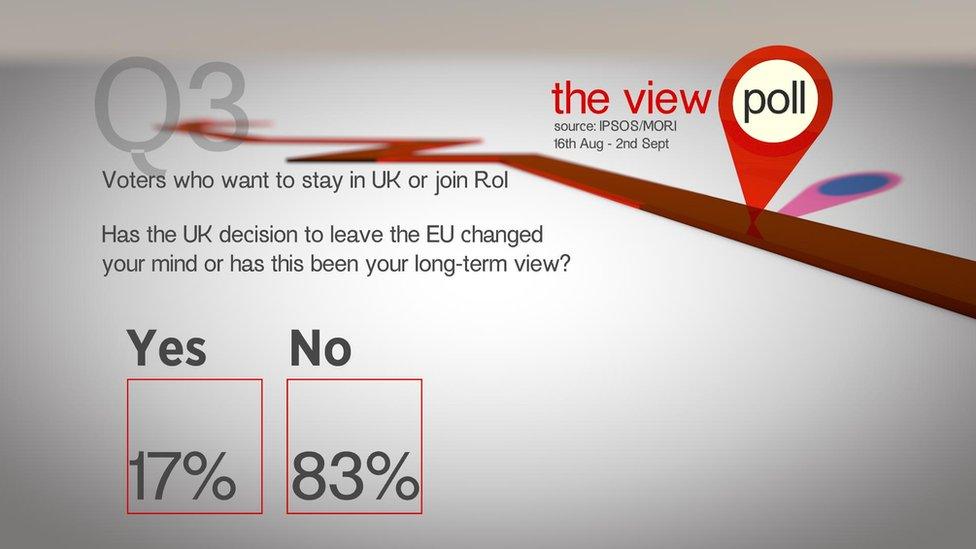
Most people did not change their minds about how they would vote in a border poll after Brexit
Pre-existing inclinations
The View survey suggests the impact of Brexit on people's attitudes to the border is likely to be fairly marginal.
Perhaps that will encourage politicians to approach the Brexit negotiations on their merits - seeking new arrangements on the basis that they will cause the least disruption to people north and south, rather than because they serve someone's pre-existing unionist or nationalist inclinations.
- Published8 September 2016
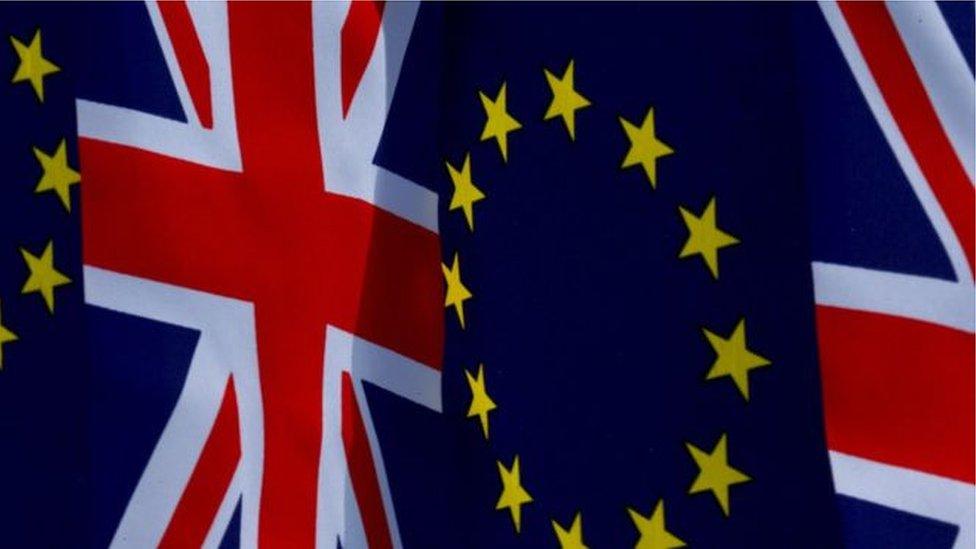
- Published8 September 2016
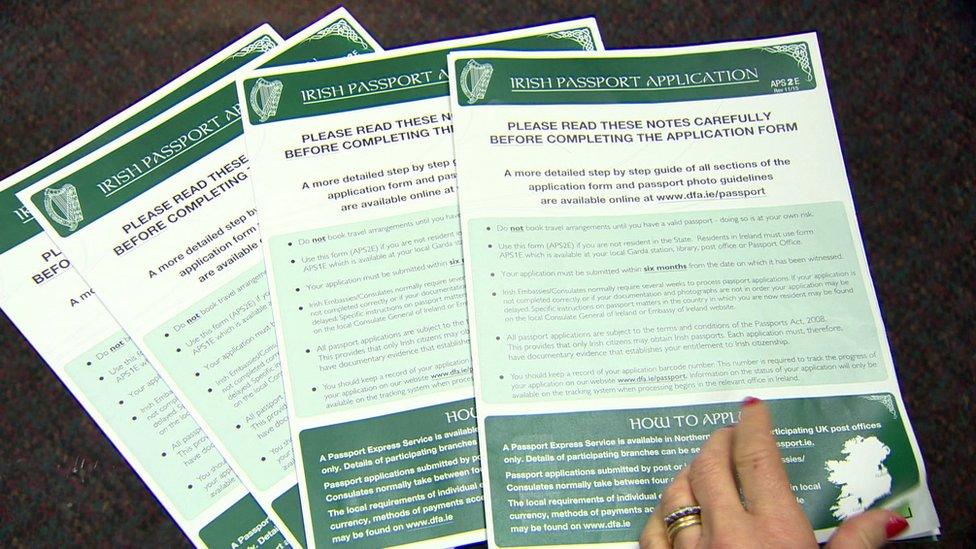
- Published18 July 2016
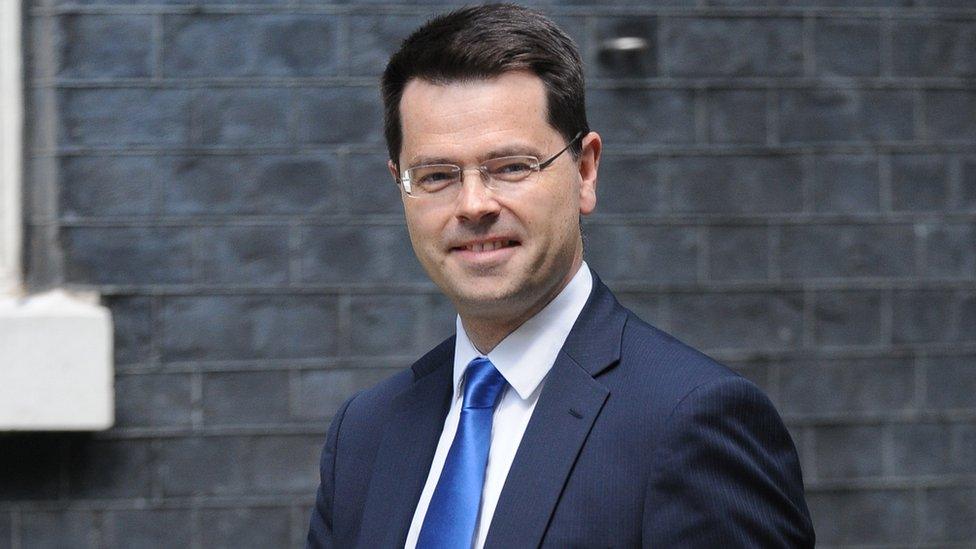
- Published17 July 2016
